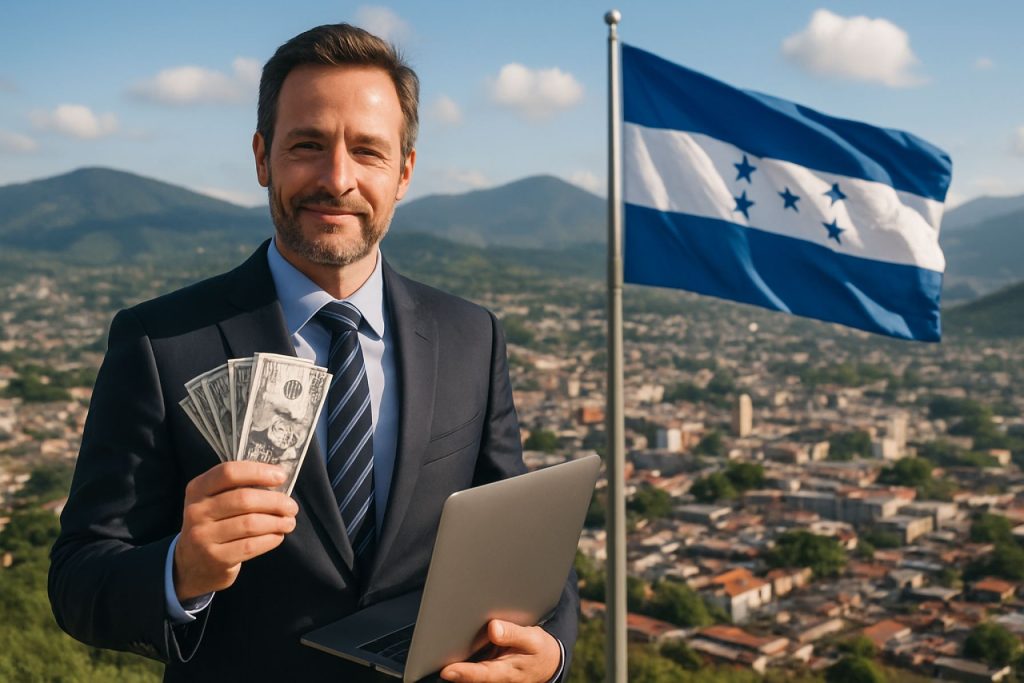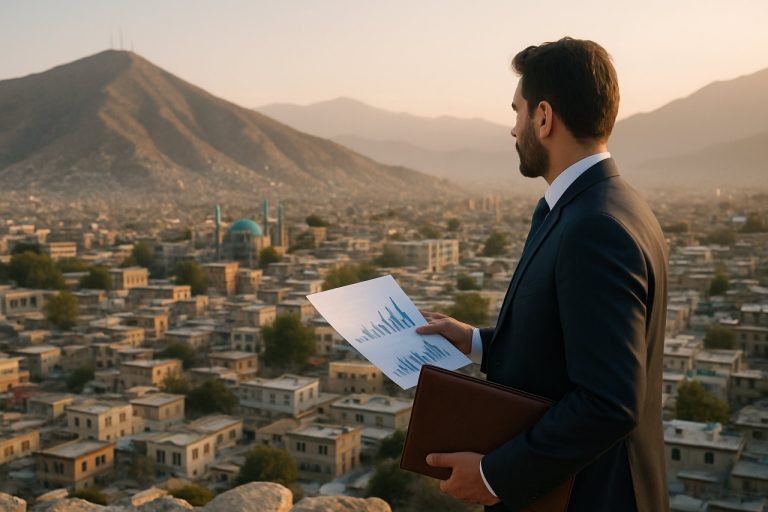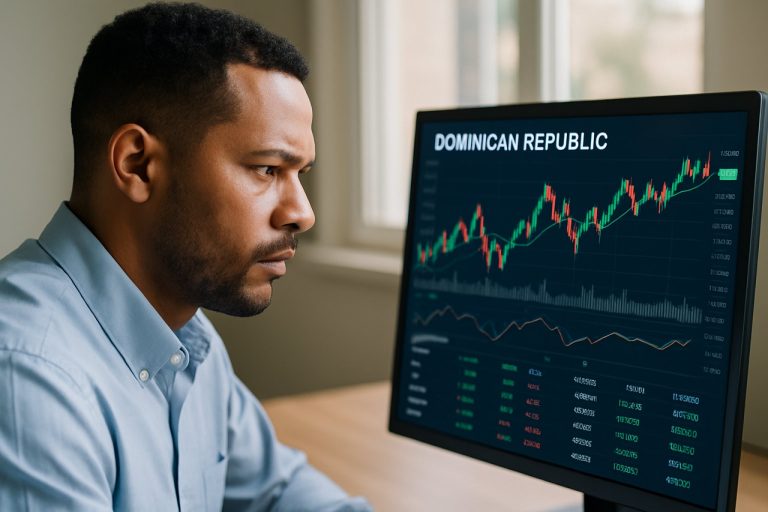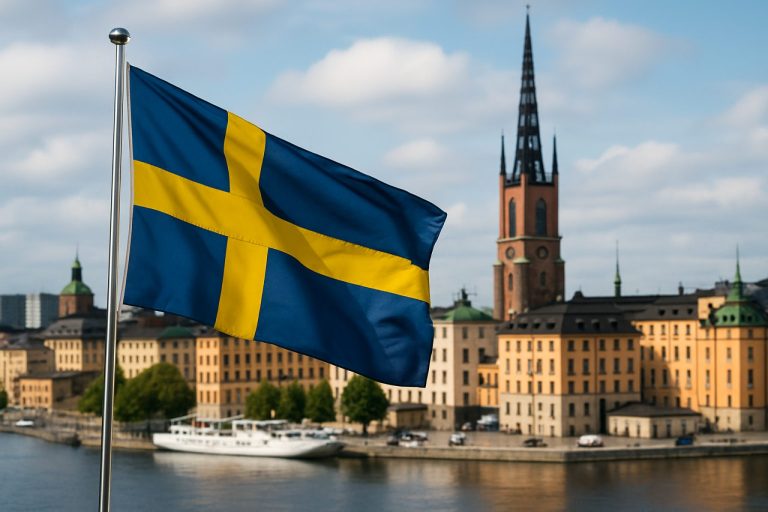
Table of Contents
- Executive Summary: Why Honduras Now?
- Macroeconomic Overview and Key Growth Sectors
- Legal and Regulatory Framework for Foreign Investors
- Tax Incentives, Free Zones, and Government Programs
- Company Formation and Compliance: Step-by-Step Guide
- Labor Market, Workforce Skills, and Demographics
- Infrastructure Developments and Digital Transformation
- Risks, Challenges, and Risk Mitigation Strategies
- Case Studies: Success Stories and Lessons Learned
- Future Outlook: Projections and Strategic Recommendations for 2025–2030
- Sources & References
Executive Summary: Why Honduras Now?
Honduras is emerging as a strategic destination for investment in 2025, driven by its commitment to economic reforms, a favorable legal framework for foreign investors, and its advantageous geographical location in Central America. The government has prioritized attracting foreign direct investment (FDI) as a catalyst for economic growth, evidenced by streamlined administrative processes, incentives in priority sectors, and ongoing improvements in the business climate.
Key legislative developments include the updated Investment Promotion and Protection Law, which guarantees national treatment for foreign investors, permits full repatriation of profits, and ensures equal access to legal recourse. Additionally, Honduras is party to several bilateral investment treaties and is a member of the World Trade Organization and the Central American Integration System, reinforcing investor protections and market access.
The “Zonas de Empleo y Desarrollo Económico” (ZEDEs) initiative—special economic zones with autonomous legal and fiscal regimes—continues to attract significant interest, particularly in manufacturing, logistics, and technology sectors. The government reports that ZEDEs offer streamlined permitting, tax incentives, and regulatory flexibility, making them a focal point for foreign capital (Invest Honduras).
Compliance and anti-corruption measures have been strengthened in recent years. The Secretaría de Finanzas has implemented new anti-money laundering regulations in alignment with international standards, and the country’s adherence to transparency obligations under the Global Forum on Transparency and Exchange of Information for Tax Purposes is under ongoing review. Investors must be diligent in adhering to local and international compliance requirements, especially regarding labor, environmental, and anti-corruption laws.
Statistically, FDI inflows rebounded in 2023–2024 after pandemic-related downturns, with the Banco Central de Honduras reporting a 12% year-on-year increase in FDI for 2024, primarily in manufacturing, agribusiness, and renewable energy. Honduras’ GDP growth is projected to average between 3.5% and 4% through 2025, supported by robust remittance inflows, infrastructure projects, and continued export opportunities (Banco Central de Honduras).
The outlook for investment in Honduras remains positive, with government initiatives focusing on digitalization, energy diversification, and infrastructure modernization. While challenges remain—including regulatory complexity and security concerns—reform momentum, improved compliance standards, and sector-specific incentives position Honduras as a promising investment destination for 2025 and beyond.
Macroeconomic Overview and Key Growth Sectors
Honduras presents a mixed macroeconomic landscape for investors in 2025, characterized by moderate growth, ongoing structural reforms, and targeted government incentives for priority sectors. According to the Banco Central de Honduras, real GDP growth is expected to reach approximately 3.5% in 2025, following a gradual recovery from pandemic-induced contractions and global market volatility. Inflation is projected to stabilize around 4.0%, aided by monetary policy adjustments and improved external conditions.
The Honduran government has prioritized economic diversification, seeking to reduce dependency on traditional sectors such as agriculture and textiles. Key growth sectors identified for foreign and domestic investment include:
- Renewable Energy: Honduras continues to expand its renewable energy portfolio, especially in hydroelectric, solar, and wind power. The legal framework, notably the Law for the Promotion of Electricity Generation with Renewable Resources, offers tax incentives and guarantees for energy projects (Secretaría de Energía).
- Manufacturing and Maquila: The maquila (export processing zone) sector remains a pillar of the economy, employing over 170,000 people. Incentives under the Free Zones Law (Decree No. 37-2007) include exemptions from import duties, VAT, and income tax for qualifying investments (Zona Libre de Industria y Comercio).
- Agribusiness and Food Processing: Coffee, bananas, and palm oil continue to drive exports. Recent government programs aim to attract investment in value-added processing and agro-industrial parks (Secretaría de Agricultura y Ganadería).
- Tourism: With an emphasis on sustainable tourism and infrastructure upgrades, Honduras expects increased investment in eco-tourism, cruise terminals, and hospitality, particularly in the Bay Islands and Copán region (Instituto Hondureño de Turismo).
From a compliance perspective, the Comisión Nacional de Bancos y Seguros oversees financial sector regulation and anti-money laundering (AML) compliance. The Investment Promotion Law (Decree No. 51-2011) guarantees equal treatment for foreign investors, access to international arbitration, and streamlined permitting processes. However, investors should remain vigilant regarding ongoing challenges: bureaucratic hurdles, corruption risks, and evolving labor regulations.
Outlook for 2025 and beyond remains cautiously optimistic. The government’s National Plan for Economic and Social Development sets out an ambitious agenda for infrastructure modernization, digitalization, and strengthening institutional transparency. International trade agreements, such as the CAFTA-DR, continue to provide market access and stability for export-oriented investors (Secretaría de Finanzas). While downside risks persist—mainly due to political uncertainty and climate vulnerability—Honduras offers significant medium-term opportunities for investors aligning with priority sectors and adhering to evolving regulatory standards.
Legal and Regulatory Framework for Foreign Investors
Honduras maintains an evolving legal and regulatory framework aimed at attracting and safeguarding foreign investment, governed primarily by the Investment Promotion and Protection Law (Decree No. 51-2011). This law guarantees national treatment to foreign investors, permits 100% foreign ownership in most sectors, and provides protection against arbitrary expropriation, subject to fair compensation. Honduras is a member of the World Trade Organization (WTO) and has ratified international agreements including the Convention on the Settlement of Investment Disputes between States and Nationals of Other States (ICSID), providing recourse for dispute resolution beyond local courts (Tribunal Superior de Cuentas).
The regulatory environment is overseen by the National Investment Council (CNI) and the Ministry of Finance (SEFIN), which coordinate policy, incentives, and compliance requirements for foreign investors. The Honduran Commercial Code and the General Law on Mercantile Companies set out requirements for company formation, shareholder rights, and corporate governance. Foreign investors must register their investments with the CNI and obtain the relevant sectoral permits, such as those issued by the Tax Administration Service (SAR) for fiscal compliance and the Ministry of Natural Resources and Environment (SERNA) for environmental licensing, particularly in extractive and infrastructure sectors.
Special investment regimes continue to play a key role. The Free Zones Law and the Temporary Import Regime (RIT) offer significant fiscal incentives, including exemptions from import duties and certain taxes for qualifying export-oriented businesses. The controversial Zones for Employment and Economic Development (ZEDEs) provide a semi-autonomous regulatory framework, although their future remains uncertain due to ongoing legal and political debates over their constitutionality (Corte Suprema de Justicia). In 2022, the National Congress repealed enabling legislation for ZEDEs, but existing projects seek legal protection under grandfather clauses, and judicial clarification is expected through 2025.
Compliance requirements are intensifying, particularly around anti-money laundering (AML), tax transparency, and environmental regulations. Honduras is aligned with international standards set by the Financial Action Task Force (FATF) and has strengthened reporting obligations for banks, real estate, and other high-risk sectors under the supervision of the National Banking and Insurance Commission (CNBS).
Looking ahead to 2025 and beyond, Honduras is expected to continue refining its investment framework, with ongoing reforms to streamline business registration and enhance investor protections. The government’s commitment to legal stability and open investment policies remains strong, but investors should closely monitor legislative developments, particularly related to special zones and compliance trends.
Tax Incentives, Free Zones, and Government Programs
Honduras continues to position itself as a regional hub for foreign investment by leveraging a range of tax incentives, free zones, and targeted government programs in 2025. The country’s legal framework, designed to attract foreign direct investment (FDI), offers robust benefits, particularly to export-oriented and manufacturing sectors.
A cornerstone of Honduras’s investment incentives is the Free Zone regime, notably the “Zona Libre” (Free Zone) and “Zona Libre de Exportación” (Export Processing Zone) programs. Companies operating in approved free zones benefit from significant exemptions, including 100% exemption from income tax, sales tax, and municipal taxes for up to 20 years. These zones also allow for duty-free import of raw materials, machinery, and equipment necessary for export production. The regulatory basis for these incentives is established under the Ley de Zonas Libres and related statutes. As of 2025, over 400 companies operate in Honduras’s free zones, with the sector accounting for approximately 35% of national exports.
Another important instrument is the Law for the Promotion and Protection of Investments, designed to provide legal security and equal treatment to domestic and foreign investors. This law guarantees the right to transfer profits abroad, protection from expropriation except for public utility and with fair compensation, and access to international arbitration for dispute resolution (Comisión Nacional de Bancos y Seguros).
Honduras also operates a Temporary Import System (RIT), which allows companies to temporarily import goods and raw materials destined for export production with full suspension of import duties and taxes (Servicio de Administración de Rentas). This system remains popular among manufacturers, particularly in the textile and automotive assembly sectors.
In addition, the Honduran government has recently launched the “Honduras 2024-2028 Investment Promotion Strategy,” which emphasizes the digitalization of investment procedures, faster business registration, and increased transparency (ProHonduras). Investors can now access streamlined online platforms for permits and tax registrations, and a one-stop service window is available for strategic sectors such as renewable energy, tourism, and agribusiness.
Looking ahead, the government is expected to maintain or expand these incentives in response to competitive pressures from neighboring countries and in line with its commitment to the Central American Integration System. Compliance requirements for investors remain straightforward, but adherence to reporting, local employment quotas, and environmental regulations is regularly audited (Secretaría de Finanzas). Overall, the outlook for tax incentives and special regimes remains favorable through 2025 and beyond.
Company Formation and Compliance: Step-by-Step Guide
Investing in Honduras has become increasingly attractive due to ongoing reforms aimed at improving the business climate and regulatory transparency. For foreign and domestic investors, understanding the process of company formation and compliance in Honduras is essential for successful market entry and ongoing operation. The following outlines the key steps and legal considerations as of 2025.
- Choosing Legal Structure: The most common legal entities for business in Honduras are the Sociedad Anónima (S.A., similar to a corporation) and the Sociedad de Responsabilidad Limitada (S. de R.L., similar to a limited liability company). The Comisión Nacional de Bancos y Seguros oversees the registration and regulation of financial companies, while commercial entities are governed under the Secretaría de Finanzas and the Cámara de Comercio e Industria de Tegucigalpa.
- Company Registration: The process starts with reserving the company name at the Mercantile Registry, followed by drafting and notarizing the Articles of Incorporation. All companies must register with the Servicio de Administración de Rentas (SAR) for tax identification purposes, and with the local chamber of commerce for commercial licensing.
- Obtaining Permits and Licenses: Depending on sector, investors may require further licensing from sectoral regulators. For example, environmental impact assessments are overseen by the Secretaría de Recursos Naturales y Ambiente. Special economic zones, such as the Zonas de Empleo y Desarrollo Económico (ZEDEs), have additional requirements and potential incentives, regulated by the Comisión para la Adopción de Mejores Prácticas en Zonas de Empleo y Desarrollo Económico.
- Compliance and Reporting: Honduras mandates annual filing of financial statements and tax returns with SAR. Companies must maintain accurate accounting records in Spanish and appoint a local legal representative. Anti-money laundering (AML) and counter-terrorism financing (CTF) compliance are monitored by the Unidad de Información Financiera.
- Key Statistics and Outlook: In 2023, foreign direct investment inflows rose by 10.8% compared to the previous year, reflecting investor confidence (Banco Central de Honduras). The government is expected to continue simplifying procedures and digitalizing company registration through 2025, in line with its commitment under the National Investment Plan.
Prospective investors should monitor ongoing legislative reforms, particularly those related to tax policy, labor regulations, and digital governance, as these may affect compliance requirements and investment incentives in the upcoming years. Engaging local legal and accounting professionals is strongly recommended to ensure full adherence to the evolving regulatory landscape.
Labor Market, Workforce Skills, and Demographics
Honduras offers a dynamic labor market for investors, with a young population and competitive wage levels. As of 2025, the country’s population surpasses 10 million, with a median age of just under 25 years, creating a substantial pool of working-age individuals. This demographic profile is advantageous for labor-intensive industries such as textiles, manufacturing, and agriculture. The economically active population is estimated at over 4.7 million, with a labor force participation rate around 62%, according to recent data from the Instituto Nacional de Estadística (INE).
Honduras’s labor regime is governed by the Labor Code and related regulations, which establish minimum wage requirements, workers’ rights, and employer obligations. Minimum wage rates are updated periodically through tripartite agreements involving the government, employers, and workers. For 2025, minimum wages vary by sector and company size, ranging from approximately 7,000 to 14,000 Honduran Lempiras per month (Secretaría de Trabajo y Seguridad Social). Employers are required to comply with statutory benefits, including social security contributions, annual bonuses, and severance pay.
The workforce is characterized by basic education levels, but there are ongoing initiatives to improve vocational and technical skills. Government programs, often in partnership with private sector and international organizations, aim to provide training in areas such as manufacturing processes, information technology, and English language proficiency. The Instituto Nacional de Formación Profesional (INFOP) is central to these efforts, offering courses tailored to market demands. However, a significant proportion of the labor force remains employed in the informal sector, estimated to account for over 70% of total employment, which presents challenges for compliance, taxation, and workplace standards (Instituto Nacional de Estadística).
Labor market compliance is monitored and enforced by the Secretaría de Trabajo y Seguridad Social, which conducts inspections and mediates labor disputes. Investors should be aware that labor disputes are generally resolved through a combination of conciliation and administrative proceedings before resorting to judicial proceedings.
Looking ahead, the workforce in Honduras is expected to remain young and grow modestly, supported by demographic trends. Continued investment in education and skills training is likely to strengthen the labor pool for higher value-added sectors. Investors considering Honduras are encouraged to leverage government training programs and maintain rigorous compliance with labor regulations to ensure sustainable operations and mitigate legal risks.
Infrastructure Developments and Digital Transformation
Honduras has embarked on significant infrastructure and digital transformation initiatives, positioning the country as an emerging destination for foreign direct investment (FDI) in Central America through 2025 and beyond. The government’s National Investment Plan prioritizes upgrades in transport, energy, and digital connectivity to stimulate economic growth and improve competitiveness (Secretaría de Desarrollo Económico).
Key infrastructure projects include ongoing modernization of ports such as Puerto Cortés, which has received major investment to become a leading logistics hub in the Caribbean Basin. The expansion of road networks, including the CA-5 and CA-13 highways, seeks to improve internal connectivity and facilitate cross-border trade, particularly with neighboring Guatemala and El Salvador. In the energy sector, Honduras has accelerated renewable energy integration; by 2024, renewables accounted for over 60% of the national electricity matrix, a trend expected to continue with new solar and wind projects planned through 2027 (Asociación Hondureña de Productores de Energía Eléctrica).
On the digital front, the Honduran government has enacted the Law for the Promotion and Adoption of Digital Technologies (2023), aiming to expand broadband access, foster digital literacy, and support e-government services. The “Honduras Digital” program is set to increase internet penetration, currently at about 40%, to over 60% by 2027. Tax incentives are available for IT and telecommunications investments, while the fintech sector is being regulated under new guidelines issued by the Central Bank of Honduras in late 2023 (Banco Central de Honduras).
Compliance for foreign investors is streamlined via the Ventanilla Única de Inversiones (Single Investment Window), which centralizes permit, licensing, and customs procedures (Comisión Nacional de Bancos y Seguros). Notably, the Honduran Investment Law (2011, amended 2023) provides legal protections for foreign capital, including equal treatment and repatriation of profits, though investors are encouraged to monitor evolving regulatory frameworks, especially concerning data privacy and anti-money laundering.
Looking ahead, Honduras’s focus on infrastructure modernization and digital transformation is expected to drive robust investment flows, particularly in logistics, energy, and ICT sectors. The government’s commitment to public-private partnerships and regulatory reforms underpins a positive investment outlook, though investors should conduct thorough due diligence and remain attentive to the evolving legal and compliance landscape.
Risks, Challenges, and Risk Mitigation Strategies
Investing in Honduras in 2025 presents a complex risk landscape shaped by political, legal, and economic factors. Understanding these risks and adopting robust mitigation strategies is critical for foreign investors seeking to enter or expand in the Honduran market.
- Political and Regulatory Risks: Honduras has experienced periodic political instability, which can affect investor confidence and policy continuity. While the government has made efforts to attract foreign investment through incentives such as the Law for the Promotion and Protection of Investments, changes in administration or legislative priorities may lead to shifts in regulatory frameworks. Investors should monitor updates from the Comisión Nacional de Bancos y Seguros and the Secretaría de Finanzas to stay informed about regulatory changes and compliance obligations.
- Legal and Compliance Risks: Weaknesses in the judicial system, including concerns about transparency and efficiency, can hinder contract enforcement and dispute resolution. Intellectual property protection and anti-corruption measures are improving, but remain areas of concern. Compliance with anti-money laundering (AML) and Know Your Customer (KYC) regulations is strictly required by the Comisión Nacional de Bancos y Seguros, which regularly updates guidelines for financial institutions and investors.
- Security Risks: Honduras continues to grapple with high crime rates, particularly in urban areas. While homicide rates have declined in recent years, security remains a consideration for businesses and their personnel. Strategies such as working with reputable security firms and conducting regular risk assessments are recommended.
- Economic Risks: The Honduran economy is vulnerable to external shocks, including fluctuations in global commodity prices and climate-related disasters. According to projections by the Banco Central de Honduras, GDP growth is expected to stabilize around 3.5% in 2025, but inflationary pressures and currency volatility could affect returns. Diversification and hedging strategies can help mitigate these risks.
- Risk Mitigation Strategies: Investors are advised to conduct thorough due diligence, engage with local legal counsel, and consider political risk insurance. Participation in entities such as the Agencia de Promoción de Inversiones y Exportaciones de Honduras (ProHonduras) can provide access to government support and up-to-date information on incentives, compliance, and market entry procedures. Establishing strong local partnerships and adhering to international best practices in environmental and social governance also enhance resilience.
Despite these challenges, Honduras maintains a favorable investment climate in sectors such as manufacturing, agribusiness, and renewable energy, provided investors proactively address the outlined risks and maintain compliance with evolving legal requirements.
Case Studies: Success Stories and Lessons Learned
Honduras has emerged as a focal point for international investment in Central America, with several high-profile case studies illustrating both the opportunities and challenges foreign investors encounter. The government’s ongoing efforts to attract foreign direct investment (FDI) are evident in legal reforms, targeted incentives, and the establishment of specialized economic zones. In 2024, FDI inflows reached nearly $800 million, with manufacturing, agribusiness, and energy sectors leading the momentum, according to data from the Banco Central de Honduras.
-
Success Story: The Maquila Sector
The textile and apparel industry has been a cornerstone of Honduras’ FDI landscape. Multinational firms, such as Gildan Activewear, have expanded operations in the country’s free trade zones. These investments benefit from the Law for the Promotion and Protection of Investments (Decree 51-2011) and the Free Zones Law, which provides fiscal exemptions and streamlined customs procedures. The success of the maquila sector is attributed to compliance with local labor regulations and environmental standards, alongside robust partnerships with local suppliers (Agencia de Promoción de Inversiones y Exportaciones de Honduras (ProHonduras)). -
Renewable Energy Growth
Another notable case is the surge in renewable energy projects, especially solar and hydroelectric. The implementation of the Renewable Energy Incentives Law (Decree 70-2007) has attracted investors such as Globeleq and Celsia. These companies have successfully navigated the regulatory framework, securing power purchase agreements, and engaging local communities in compliance with environmental impact assessments mandated by the Secretaría de Recursos Naturales y Ambiente. -
Lessons Learned: Legal Certainty and Governance
Despite success stories, some investors have faced challenges related to contract enforcement and land rights. High-profile disputes over concession contracts and changes in special economic zone (ZEDE) legislation underscore the need for rigorous due diligence. The repeal of the ZEDE framework in 2022 by the National Congress, which affected several investments, highlighted the importance of monitoring legislative risks (Congreso Nacional de Honduras).
Looking ahead to 2025 and beyond, the government continues to emphasize investment climate improvements through digitalization of business registration, anti-corruption initiatives, and alignment with international compliance standards. However, investors are advised to stay abreast of evolving legal frameworks and to prioritize transparent, community-focused engagement strategies to mitigate operational and reputational risks. With prudent planning, Honduras remains a promising, if complex, investment destination.
Future Outlook: Projections and Strategic Recommendations for 2025–2030
As Honduras approaches the mid-2020s, the investment landscape is shaped by evolving regulatory frameworks, sectoral reforms, and macroeconomic trends. The government’s ongoing commitment to fostering foreign direct investment (FDI) is evident in recent amendments to investment laws and fiscal incentives targeting priority sectors such as renewable energy, agribusiness, tourism, and manufacturing.
Key legislative developments include the continued enforcement of the Ley para la Promoción y Protección de Inversiones (Investment Promotion and Protection Law), which guarantees equal treatment for foreign and local investors, free currency convertibility, and repatriation of profits. The investment regime also includes Free Trade Zones (Zonas Libres) and special regimes such as the Maquila Law, offering tax exemptions and streamlined customs procedures for qualifying businesses.
Recent compliance initiatives—particularly the digitalization of company registration through the Mi Empresa en Línea platform and the push toward anti-money laundering (AML) standards as outlined by the Comision Nacional de Bancos y Seguros—have improved transparency and reduced bureaucratic delays. Investors must adhere to sector-specific regulations, including environmental licensing overseen by the Secretaría de Recursos Naturales y Ambiente, and tax compliance monitored by the Servicio de Administración de Rentas.
Statistically, Honduras has shown resilience in attracting FDI, with 2023 inflows reaching approximately $850 million, reflecting a 12% increase over the previous year, according to figures from the Banco Central de Honduras. The manufacturing (maquila) sector remains the dominant recipient, followed by energy and financial services. The anticipated ratification of regional trade agreements and the modernization of port infrastructure—particularly at Puerto Cortés—are expected to further enhance the country’s attractiveness for export-oriented investments.
Looking ahead to 2025–2030, political stability, ongoing public security reforms, and potential constitutional amendments will remain critical variables. Strategic recommendations for investors include:
- Prioritize sectors benefiting from government incentives and international demand (notably green energy and agroexports).
- Leverage digital tools for compliance and company formation to expedite market entry.
- Monitor regulatory updates, especially concerning anti-corruption, labor, and environmental standards.
- Engage with local partners to navigate administrative processes and build community relations.
Overall, while challenges such as security and infrastructure gaps persist, Honduras offers a progressively structured and investor-oriented environment, with positive medium-term projections contingent on sustained reform momentum and regional economic integration.
Sources & References
- World Trade Organization
- Invest Honduras
- Banco Central de Honduras
- Secretaría de Energía
- Secretaría de Agricultura y Ganadería
- Instituto Hondureño de Turismo
- Tribunal Superior de Cuentas
- Ministry of Natural Resources and Environment (SERNA)
- Ley de Zonas Libres
- Instituto Nacional de Estadística (INE)
- Instituto Nacional de Formación Profesional (INFOP)
- Secretaría de Desarrollo Económico
- Ley para la Promoción y Protección de Inversiones
- investment regime
- Comision Nacional de Bancos y Seguros



